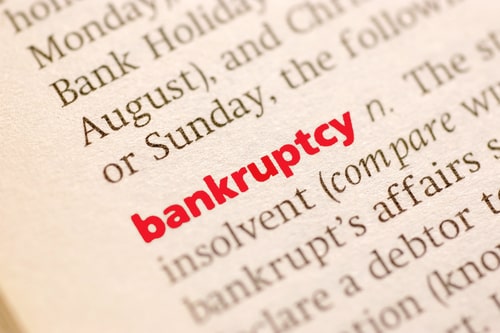Who Owns Your Car When You File Bankruptcy in Texas?
 When facing financial hardship, many people consider filing for bankruptcy to eliminate overwhelming debts and get a fresh start. However, this raises an important question regarding valuable assets like cars and motorcycles. For example, who owns the vehicle if you file for bankruptcy? A Texas bankruptcy lawyer can help break down the complex legal ownership rights to your car when navigating the steps.
When facing financial hardship, many people consider filing for bankruptcy to eliminate overwhelming debts and get a fresh start. However, this raises an important question regarding valuable assets like cars and motorcycles. For example, who owns the vehicle if you file for bankruptcy? A Texas bankruptcy lawyer can help break down the complex legal ownership rights to your car when navigating the steps.
What is the Difference Between Chapter 7 and Chapter 13 Bankruptcy?
To understand vehicle ownership in bankruptcy, you must first comprehend the contrast between the two most common bankruptcy filings, Chapters 7 and 13. Chapter 7 bankruptcy involves liquidating your non-exempt assets to eliminate all eligible debt. This provides a quick discharge, but assets may be surrendered to creditors. Conversely, Chapter 13 bankruptcy proposes a 3-5-year debt repayment plan to repay creditors with future earnings over time.
Texas Bankruptcy Exemptions on Cars
Texas features state and federal exemptions allowing you to protect qualifying property, like homesteads, cash, and vehicles, from liquidation in bankruptcy. One exemption is the full protection of up to $30,000 equity value of one car per person in a Chapter 7 filing. Texas also offers a “super exemption” under Chapter 13, which can fully exempt all car value regardless of the number owned or equity if they qualify as “tools of the trade.”
Vehicle Liens Impact Ownership Rights
Importantly, if there is outstanding debt owed against the vehicle’s value through a car loan or lien, those creditors maintain an ownership interest tied to potential proceeds. For instance, if you own a car worth $15,000 but still owe $10,000 to the financing bank, they have priority rights to recoup that $10,000 loan balance even if you file for bankruptcy. So, in practice, you may only have an exempt ownership interest in the leftover equity difference, which is $5,000 in this example.
Surrendering Possessory Rights Versus Retaining the Car
When filing Chapter 7 bankruptcy in Texas, you have a choice whether to surrender the car back to creditors or keep possession by continuing to make timely payments. Surrendering the vehicle formally gives full ownership rights back to lienholders, typically the financing company. If not current on payments, they may then repossess the car. Conversely, by retaining possession and staying current on loan payments throughout bankruptcy, you uphold an exempt equity interest while creditors patiently wait to get repaid. This allows you to keep driving the car long-term.
How Chapter 13 Changes the Equation
Under a Chapter 13 bankruptcy, vehicles are always retained rather than surrendered because the core concept involves catching up on defaulted payments over time under the court-ordered repayment plan. As mentioned above, Texas’ unique “tool of the trade” exemption invites even more flexibility to retain 100% ownership over cars critical for your livelihood, no matter how much is still owed to lenders. However, completing Chapter 13 obligations without defaulting is required to uphold the exempt ownership stake.
Contact a New Braunfels, TX Bankruptcy Lawyer
Figuring out who legally owns a car when bankruptcy enters the picture can get complicated fast. But Texas does offer generous exemptions and alternatives tailored to protecting vehicle ownership rights while eliminating other debts. Understanding the core differences between Chapter 7 and Chapter 13 filings helps clarify the options. Working with a San Antonio, TX bankruptcy attorney at Law Offices of Chance M. McGhee who can assist during the process is beneficial. Call 210-342-3400 for a free consultation






